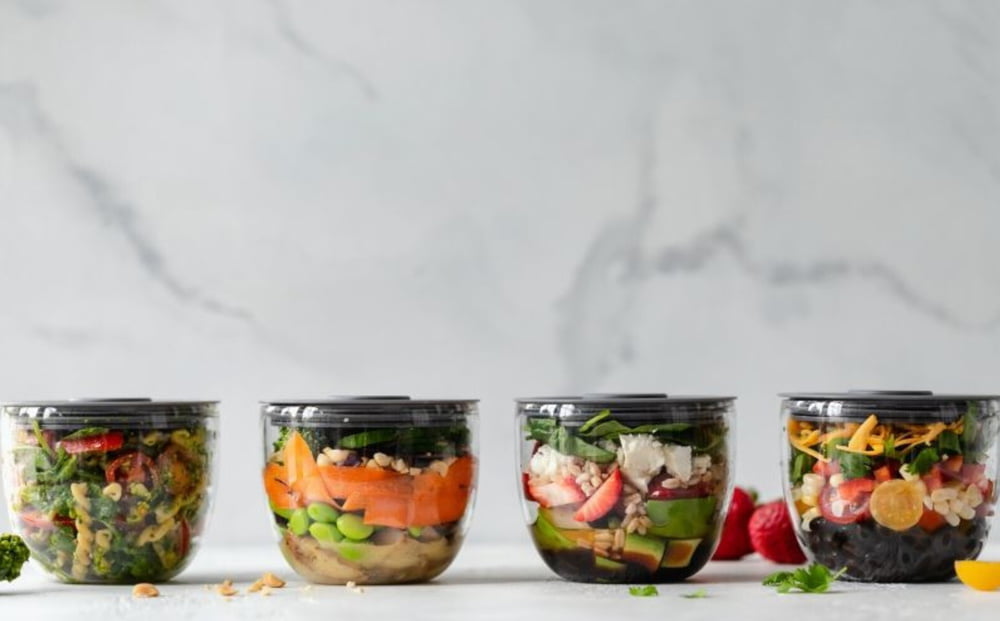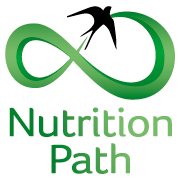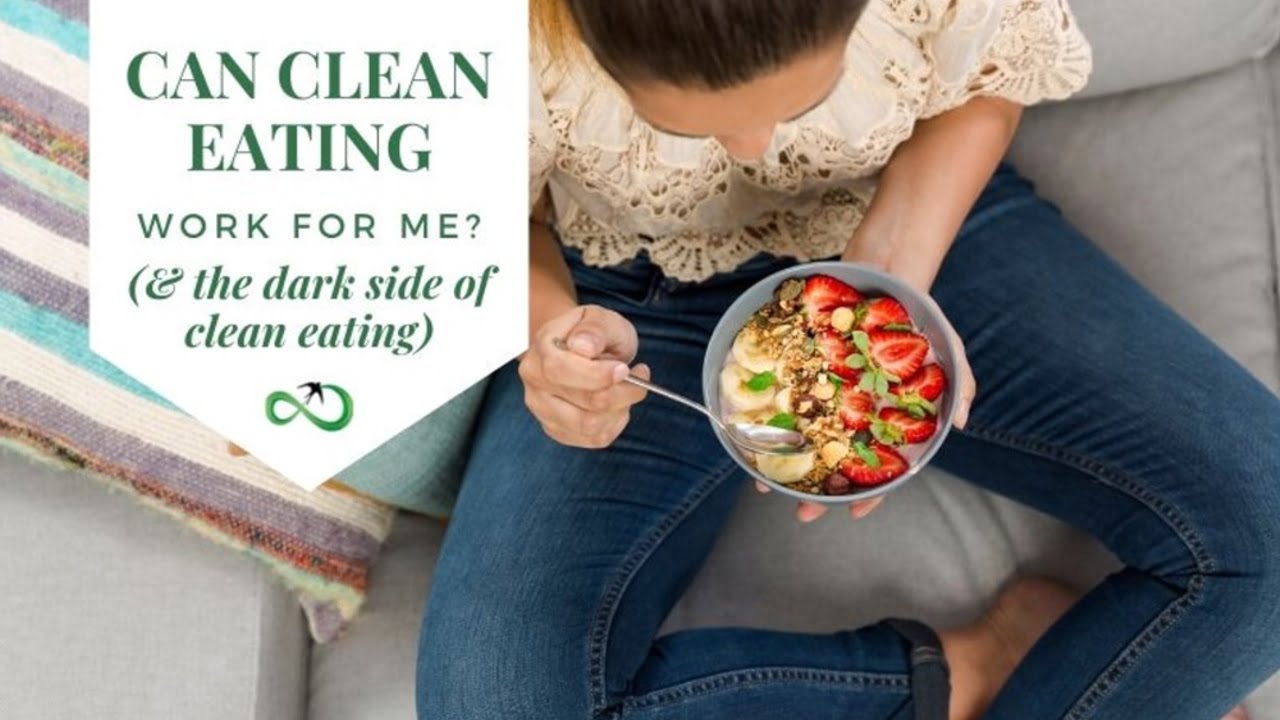For many January seems like the perfect time to “shape up” and “lose a few pounds” and it logically makes sense- who doesn’t want to feel better in their bodies and have more energy after the slog of Christmas and the festive season?
Each new year has its own lifestyle and healthcare trends, that are heavily focused on “no pain no gain” principles and approaches to diet and exercise. It’s enough to take one look on social media, turn on the TV or visit the cafe next door to figure out the catch-phrases of the month, such as “detox”, “lean” and “greens”.
“Clean eating” and intermittent fasting are some of new health trends and approaches that hit the headlines the past few years and get an influx of fresh attention this time of the year. You too may be tempted to have a go at “clean eating” and make changes to your diet.
But how do you know if that’s the right thing for you? Are there any dangers associated with it? And what the heck it actually is?
If you have any of these questions come up, then you’re in the right place so keep reading to find out more about the “clean eating” trend.
What’s “clean eating” all about?
If we simply look at “clean eating” on paper, there are a lot of positives when it comes to this way of eating. In fact, you will hear me talk about some of the guidelines associated with “clean eating” and share my own advice this way.
“Clean eating” seems to be a step away from counting calories and focuses on nourishing your body with foods that boost metabolism and support wellbeing. Some guidelines include eating food, that is non-processed, includes plenty of fruit and veg with each meal, focuses on lean proteins, quality fats and quality produce altogether.
A person following a “clean eating” regime has to be eating 6 times per day, drink plenty of water and stay hydrated and exercise regularly. Although many will use this as a tool for weight loss, benefits can also be seen in overall wellbeing, energy levels and sleep.

Too good to be true?
At the very first sight “clean eating” sounds pretty good- like a good attempt to a “balanced diet” and weight loss efforts, as it promises weight loss of around 3 lbs per week. Sounds good, right?
Well, not quite. The caveat is that you do need to stick to it to the dot, not deviate from suggested products (although there are a lot of the products “allowed” on the list) and there are meal plans available, even if you mix and match them. And although this is the closest attempt to eating a balanced and nourishing diet, this way of eating has too many characteristics of another diet and is sending some unhelpful messages. Keep reading as I explore them further that will make you make a good, informed choice of whether it’s for you.
3 lbs (1.4kg) weight loss per week
Although it sounds incredible if you do want to lose weight, 3 lbs (1.4kg) is, in fact, more than recommended healthy weight loss per week, as it could well mean that muscle and water is being lost, rather than the fatty tissue. More is not always better and more effective.
Lean protein
“Clean eating” focuses on consuming a fair amount of lean protein and avoiding saturated fats, however, it is important to note that humans need a small amount of saturated fat to remain healthy and well. Often that is completely missed by many of the diets and “nutrition experts”, as the general consensus is that the majority of people are consuming too much.
Having 6 meals per day
Having regularity when it comes to food can hugely support energy, blood sugar balance and moods, however not absolutely everybody needs 6 meals per day, depending on their schedule and requirements, as well as energy expenditure. In turn that doesn’t leave much space for flexibility and spontaneity, which our lives are packed with (diet alert!).
A little bit of what you fancy
Not sure about you, but some foods I truly enjoy and have, one in a while, may contain ingredients that aren’t “the cleanest”. For good mental health and balance it’s important to join in social situations and not feel like even the tiniest amount of some foods are off limits and “clean eating” doesn’t allow much space for that, once again pointing out its diet-like qualities.

The messages around food
One of the biggest downfalls of “clean eating” is that it sends out an entirely unacceptable message, starting from the name itself- “clean”. Does that mean that anyone, that is not eating according to that regime and those types of foods are “eating dirty”? Does that mean that one deviation from the plan or foods makes people “dirty eaters”? And let’s be honest, “dirty” doesn’t sound so appealing and it may start to send mixed messages when it comes to mental health and creating food guilt.
Additionally, a lot of the language around “clean eating” supports a somewhat “perfectionist” attitude towards food, as it mentions “right” amounts and portion control, calling foods “good”, “bad”, “calorific” and etc. These messages tend to sync into the psyche and contribute towards classing foods in unhelpful ways and creating food guilt long-term. This often leads towards a distorted relationship with food and, in extreme cases, eating disorders.
There’s a huge list of foods to avoid when it comes to “clean eating”, which of course, can get stressful and obsessive. Calorie dense foods with no nutritional value are called anti-foods, which may sometimes make “clean eating” followers start to demonise particular food groups and unnecessarily include more foods on this list, creating food fear.
How to recognise when healthy becomes obsessive and disordered
Don’t get me wrong, the majority of people in the Western World could benefit from boosting the nutritional value and antioxidant status of their foods, as well as optimise habits around food. Sadly, around 25% of people who go on diets and start controlling their food intake and habits will go on to develop an eating disorder (1), whether it’s anorexia, bulimia or binge eating disorder.
“Clean eating” and intermittent fasting are often closely linked to the development of orthorexia- an eating disorder, that is largely focused on only eating healthy foods and going to extreme lengths for it, as well as anxiety and obsession. And it’s not a surprise that food messaging of “good”, “bad” and “clean” may play a role in it.

But how do you know when healthy eating turns disordered?
Such signs as avoiding social occasions because of food choices available, being unable to put food rules aside even if they want to and only ever eating healthy or perceived healthy foods are important warning signs. This may also include the person silently (or out loud) judging others for their food choices and food habits interfering with work, relationships and personal life.
Bottom line
If you take one thing away from this article, remember that in the end, we are all individuals with our own nutritional needs, health history and our unique bodies, that cannot be squeezed into an “one size fits all” bucket. Sure, there are plenty of good tips and ideas from the “clean eating” regime that can help you boost health and wellbeing, but make to be kind and gentle with your body. And if you’re looking for weight loss advice that works and is backed by extensive research, check out my previous blog on the 7 Habits of people who successfully lose weight (and keep it off).



